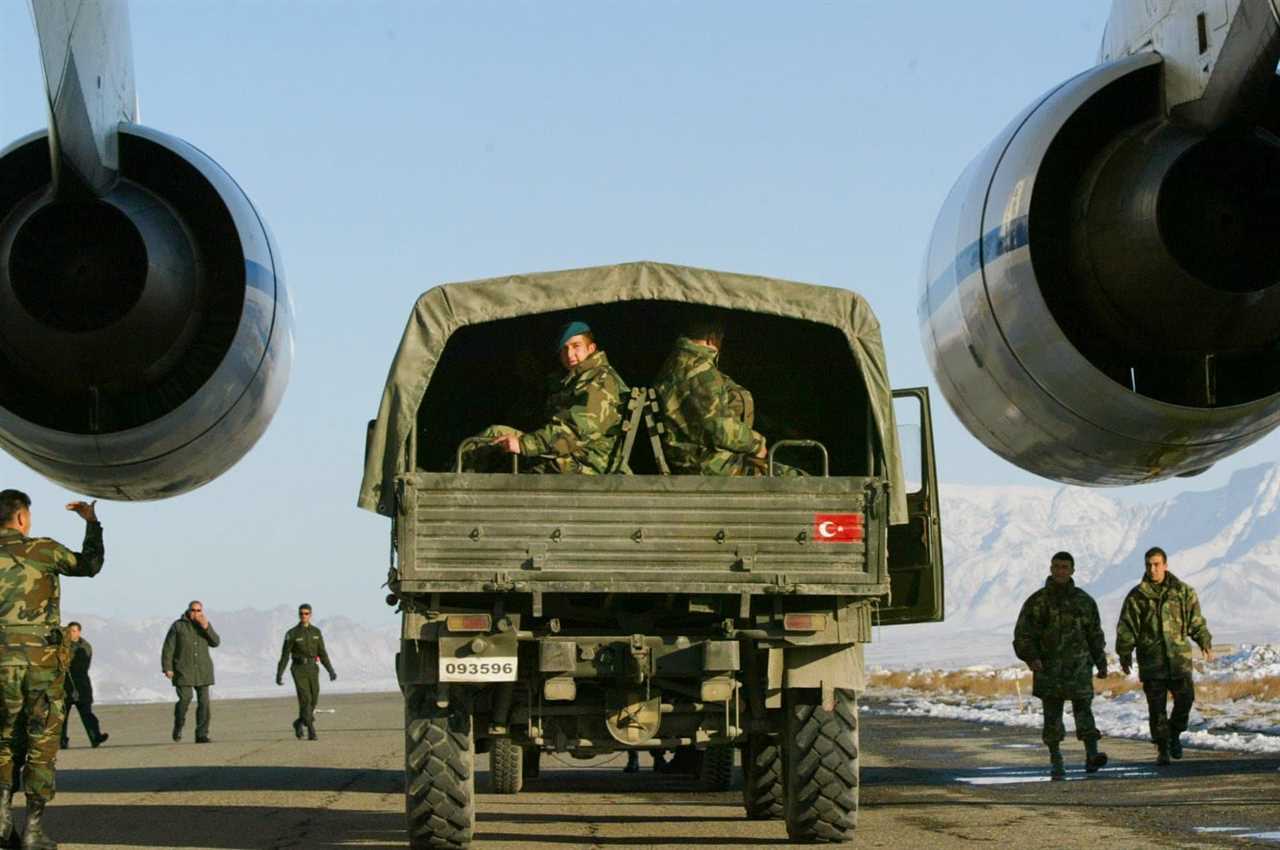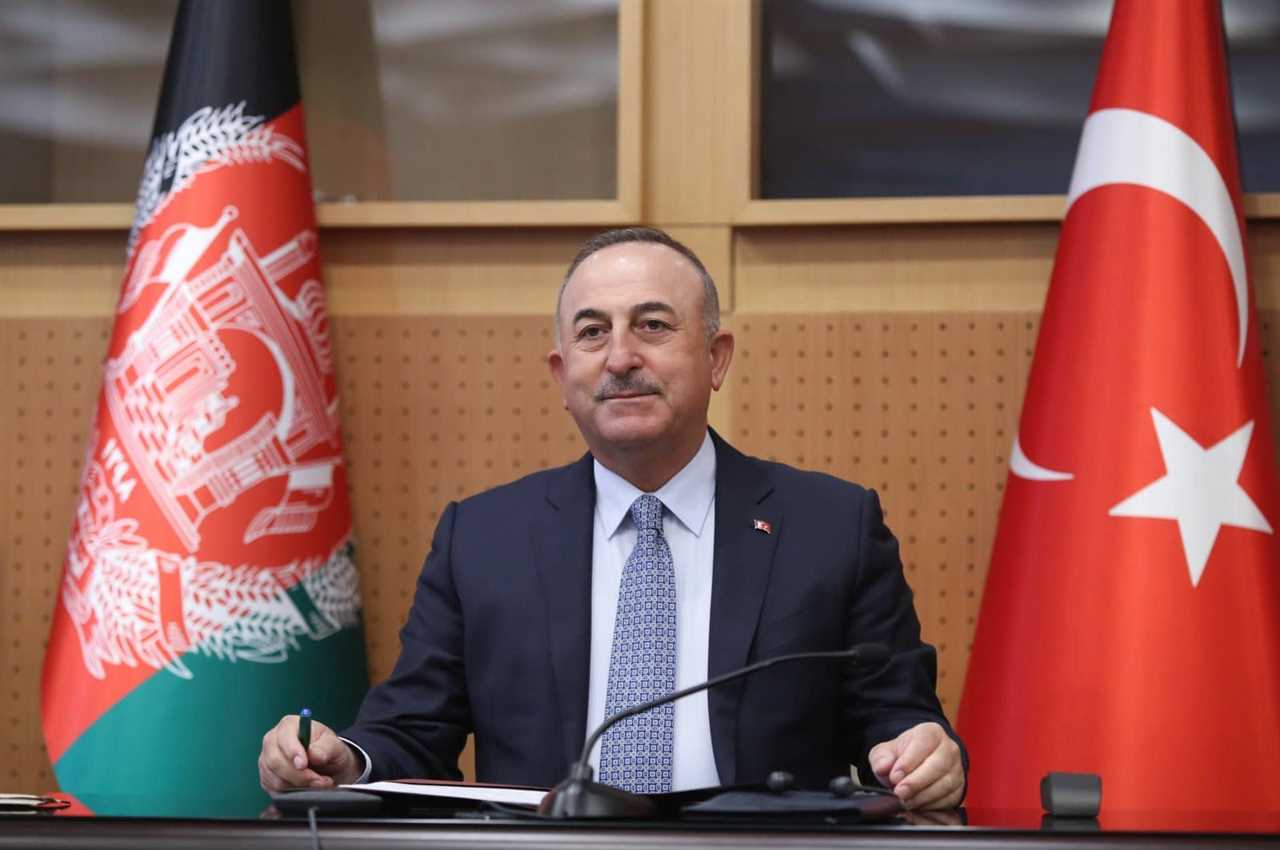After the United States finished its withdrawal from the two-decade war in Afghanistan on August 31, regional powers remain at work trying to understand what this new geopolitical reality means for them. A Taliban dominated Afghanistan has been effectively cemented for the foreseeable future now that a slate of candidates has been named for a new government even in the face of continued resistance from corners of Afghan society.
Turkey has been among the countries carefully minding new developments in Afghanistan. On the same day a new Afghan interim government was announced, Turkey’s President Recep Tayyip Erdogan said that Ankara was watching the situation closely and his foreign minister Mevlut Cavusoglu insisted that there was “no rush” to recognize the regime. This observation mirrors statements from other concerned observers like Russia, but it masks what is in fact a more sophisticated thought process towards Afghanistan in Turkish foreign policy.
To be certain, Turkey has a long history of relations with Afghanistan. During the 1920s, Afghanistan’s King Amanullah Khan was an enthusiastic follower of the Turkish republic’s modernization under Mustafa Kemal Ataturk. Under Khan, Afghanistan was the second country to recognize the nascent Turkish state after the Soviet Union, and he was keen to emulate Ataturk’s programs in his own country.
But Turkey has still remained something of a distant actor in Afghanistan. Since the September 11th attacks on the US in 2001, Turkey has maintained a military presence alongside NATO albeit in a non-combat role. Turkey has also played an important role in negotiations between the United States, the previous Afghan government and the Taliban though it remained a secondary location compared to Qatar where the final agreement to withdraw was ultimately brokered.
Turkey’s present interest in Afghanistan has been primarily understood as a means to repair strained relations with Washington. For the last decade, Turkey under Erdogan has shifted away from a close alliance with the US, owing to disagreements over Syria, Turkish aggression against its fellow NATO allies in the Eastern Mediterranean Sea, and American sanctions over Ankara’s purchase of the S-400 missile system from Russia. Years of tension exposed the sensitivity of the Turkish economy to fluctuations in its relationship with the US and left it has found itself in a much more isolated position across its neighborhood.

A file photo showing Turkish soldiers at Kabul’s international airport.
Today, Erdogan is eager to paint a picture of a renewed Turkish-American partnership, and Afghanistan is considered a stepping stone towards better relations with Washington. Since at least May, Turkey has spoken about maintaining a role in Afghanistan after the US withdrawal was completed. The form it would take was through assuming control of security at Kabul’s Hamid Karzai International Airport, a role the Turkish military has played for years. Turkey’s proposal was greeted with interest by the US and together they worked on the terms of any cooperation after Erdogan conditioned it on continued American logistical, diplomatic, and financial support.
After Kabul fell to the Taliban, Turkey’s airport mission appeared to be dead. The Taliban were never enthusiastic about a continued Turkish role in Afghanistan, viewing it with suspicion as a veiled means to maintain some American presence past the withdrawal. After initially promising to resist any foreign presence on Afghan soil, the Taliban shifted tone and said it would welcome Turkish assistance, minus any soldiers. Since then, reports indicate that Turkey could rely on private security agencies to manage the airport and Turkish technical teams are on the ground working to bring Kabul’s airport back into operation.
Like many Western countries that are interested in engaging with a Taliban-ruled Afghanistan, the key to Turkey’s achievement of its mission may lie with Qatar. Since 2013, the small Gulf kingdom has kept an open channel with the Taliban through its political mission in Doha and Qatari support has been essential to several American administrations who looked for a negotiated end to the war. Secretary of State Anthony Blinken and other foreign diplomats have hailed Qatar for its support throughout the chaotic evacuation from Afghanistan as a testament to its importance.
Qatar is Turkey’s most important ally in the Middle East. Turkish support kept it afloat when neighbors led by Saudi Arabia and the United Arab Emirates initiated a four-year blockade in 2017 and the two have signed numerous cooperation agreements over the years. Compared to Turkey, Qatar remains the more trusted interlocutor to the Taliban and this already appears to be working to Ankara’s advantage. In an interview with the Financial Times, Qatar’s foreign minister Sheikh Mohammed bin Abdulrahman al-Thani said that it was coordinating its efforts with Turkey to reopen Kabul’s airport.
Turkey has advantages that are also separate from any offered by Qatar. Whereas Qatar has been the Americans’ middleman with the Taliban, Turkey can offer the same for Europe. Already, the European Union has been anxious about any possibility that a wave of desperate Afghans will flee the Taliban for safety in the bloc. EU leaders, mindful of their utter failure to effectively manage the millions of Syrian and Iraqi refugees that crossed its borders in 2015, have turned to Turkey for assistance with Afghanistan. Given Brussels’ eagerness to avoid a repeat of 2015, Ankara is in a prime position to leverage any relationship with a new Afghan government to curb refugee outflows in exchange for some concessions.
Turkey may also see a presence in Afghanistan as a possibility to realize a long-held goal of expanding its influence into Central Asia. Resisted by Russia, and economically outdone by China, Turkey has failed to make deep inroads with the largely Turkic-speaking ex-Soviet republics, where cultural ties run deep.
Since openly backing Azerbaijan in its victory in Nagorno-Karabakh last year, Turkey’s position, relative to Central Asia, has strengthened considerably. Infrastructure projects are underway to make the most of the now shared border between the two. These investments are pictured as a way to possibly transform Turkey into a transit route for the flow of Central Asian gas to European markets and reduce Turkish reliance on Russian or Iranian energy imports. It may also aid the Central Asian gas suppliers in diversifying their relationships by opening them further to new export partners. If Turkey can contribute to any stability in Afghanistan, the region may hearten to future overtures that help Ankara further its grand strategy in the east.

For all the possible rewards Turkey may hope to gain from remaining in Afghanistan, there are just as many risks. The most obvious among them being security which remains precarious as a fragile Taliban-led government takes shape.
The threat to the Taliban from resistance fighters in the mountainous Panjshir province appears to be limited, but it can still create headaches for the radical militant group. Members of the overthrown Afghan government, including former Vice-President Amrullah Saleh and Ahmad Massoud, the son of the legendary resistance fighter Ahmad Shah Massoud, have urged Afghans to continue resistance against the Taliban with some effect. The Islamic State through its local branch ISIS-K also remains a threat as demonstrated by the August 27 attack on Kabul airport that left 170 dead, including 13 American service members.
Protests are also continuing against the Taliban from women and other groups wary of taking the militants at their word that they have moderated away from their brutal rule from the 1990s. Some of these protests have been blocked by the Taliban, while others were dispersed with gunfire shot into the air.
Turkish leaders like Foreign Minister Cavusoglu have cautioned that Afghanistan could return to civil war if more is not done to bridge its political divisions while also meeting the twin crises of widespread hunger and poverty. Qatari officials have similarly warned that a decline in the security situation is the most immediate risk to reconstruction in Kabul and elsewhere.
Turkey’s policies in Afghanistan can also backfire if the problems are felt closer to home. For all of the EU’s concerns about refugees, Ankara is also afraid of an increase in Afghans crossing over its borders. For months, the government has fortified its frontier with Iran by constructing a concrete wall outfitted with advanced sensors and patrolled by Turkish soldiers. Turkey has also balked at proposals from the E.U. and the U.S. that called on it to house additional Afghan refugees with Erdogan himself stating that Turkey would not be “Europe’s migrant warehouse”. He has refused to commit to hosting more Afghans and any EU proposals that would imitate the Syrian refugee deal by providing funds in exchange for keeping the Afghans in Turkey itself.
Anti-refugee sentiment has reached a boiling point in Turkey over the Erdogan government’s hosting of four million Syrian refugees, a fervor that has not spared the over 100,000 Afghans who also reside in the country. This has been a liability for him as the Turkish opposition has adopted aggressive rhetoric on migration, including promises to ignore any international deals they believe Erdoğan to have struck with the West on the topic if they come to power.
The anti-migrant fervor of the Turkish public boiled over last month right when a massive riot broke out right outside Ankara with looters ransacking Syrian neighbourhoods over the murder of a Turkish teen in a dispute with two Syrians. At a time when the Turkish economy remains weak and the political atmosphere remains highly polarized, Erdogan faces serious risks to his two decades of uninterrupted rule in Turkey.
If Turkey remains insistent on remaining in Afghanistan, these challenges will guide it in a cautious and calibrated direction. Support from allies in Qatar and the West will be the most critical elements to Turkish strategy as will developments that hinge on the Taliban’s ability to establish control over a still restive Afghanistan. For Erdoğan in particular, the risks are acute and it will likely keep his ambitions in check lest they come back to haunt him at home.
-------------------------------------------
By: Nicholas Waller
Title: What are Turkey’s ambitions in Afghanistan after the US’ withdrawal?
Sourced From: www.neweurope.eu/article/what-are-turkeys-ambitions-in-afghanistan-after-the-us-withdrawal/
Published Date: Fri, 17 Sep 2021 10:47:00 +0000
Read More
 UK PoliticsWorld PoliticsVideosPrivacy PolicyTerms And Conditions
UK PoliticsWorld PoliticsVideosPrivacy PolicyTerms And Conditions
